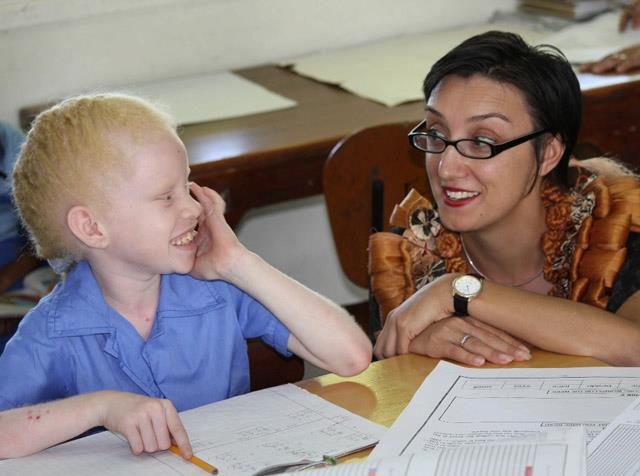Context: The World Health Organization (WHO) estimates that only 10 per cent of young children with vision impairment in poor or developing countries are enrolled in school. In the Pacific, enrolment rates for young persons with blindness or vision impairment are generally low due to school enrolment exclusionary policies. In 2015, there were an estimated 11,402 persons with disabilities (1.4 per cent of the population), and youth aged 14-19 had the second highest prevalence rate after the 51+ age group. Furthermore, 7.3 per cent of persons with disabilities had exclusively a vision problem and 25.5 per cent had multiple disabilities (including visual disabilities).
Implementation of programme/ initiative: The Fiji Society for the Blind provides a number of services for visually impaired persons including training, assistance finding employment, primary eye care, blindness prevention, a student hostel (the only one for blind youth in Fiji) and a school specialized in offering high quality education to the blind. Another important activity of the Society is promoting mainstreaming of inclusive education, so that youth not living near the school maintained by the Society can also benefit from an accessible education. For youth in rural areas, the Society provides a rural rehabilitation programme with community-based field workers who assist visually impaired individuals and families in personal development and community integration. Support for The Fiji Society for the Blind includes Sight Savers England, Pacific Island Council for the Blind (Germany) and the Helen Keller Foundation.
Main challenges: Ensuring complete coverage is difficult as the only national agency providing the broad array of education, training, rehabilitation and related services to blind and visually impaired persons. The majority of Fijians with significant visual impairment are kept in villages, employed in farming or small family businesses, which creates great geographic dispersion. With seven field workers in ten regions, limited human resource capacity is a challenge.
Results achieved: The Society operates a diverse range of services to approximately 500 visually impaired young persons in Fiji. Among these youth, 252 have found employment in a range of fields, including as a newspaper seller, telephone operator, market vendor, musician, fisherman, teacher, priest, hotel worker and teacher. More than 50 blind and low-vision students have attended primary and secondary classes, where more than half have found open employment in administrative and education fields.
Moving Forward: University officials plan to ensure that courses and services are made accessible to more blind and visually impaired students in the future. This will be made possible through the provision of appropriate adaptive technology, as well as making buildings and lecture rooms accessible. The Government supports the Society’s mainstreaming initiative to increase the number of education opportunities available to visually impaired young people.
Replicability: The work by the Society highlights the usefulness of inclusive education mainstreaming by learning from the experience of operating a specialized school. Also, their rural outreach is an example of not only expanding coverage but increasing coverage in areas that are identified as more disadvantaged and needing greater attention.
References
Perry A. Debra. (2003). Moving Forward: Toward decent work for people with disabilities. International Labour Office. http://www.ilo.org/wcmsp5/groups/public/—asia/—ro-bangkok/documents/publication/wcms_bk_pb_89_en.pdf
Project Details
Date: September 22, 2016
